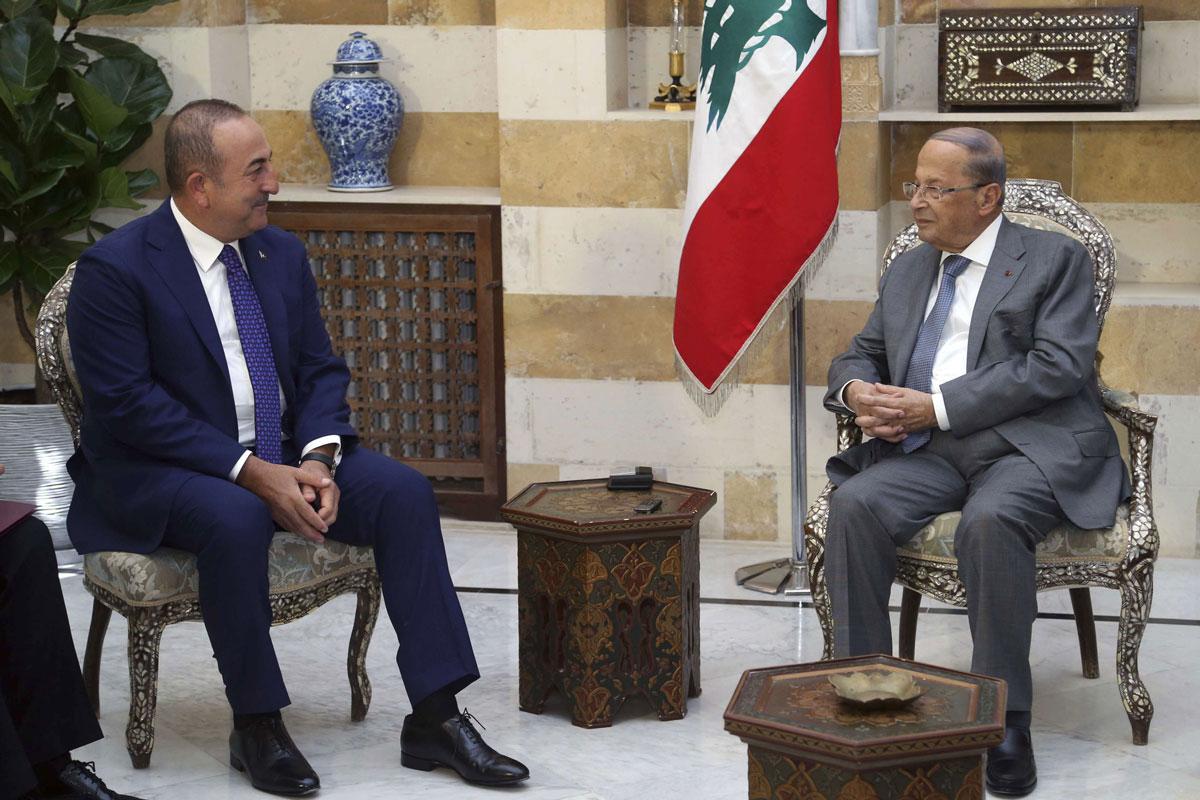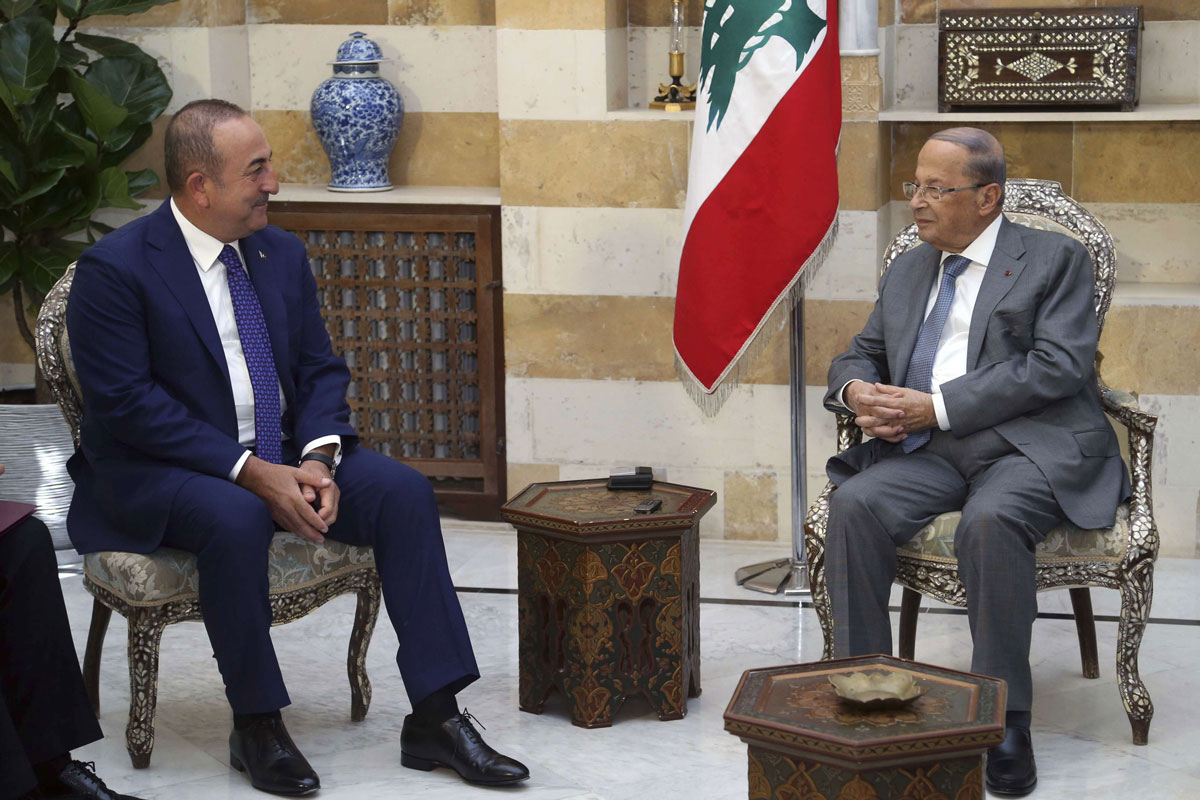Lebanon-Turkey relations jolted by Aoun supporters’ juvenile stunt
Relations between Turkey and Lebanon became strained for the first time, following a minor incident which is threatening to escalate into a full blown diplomatic spat – which could result in Turkish business in troubled Lebanon being wound down and diplomatic relations perhaps downgraded.
According to Turkish state media on Friday September 6, the Turkish foreign minister called for quick action to "protect Turkish interests in Lebanon", following protests over an anti Turkish banner being draped across its embassy building in downtown Beirut.
Although the incident seems to be relatively minor, given the tensions domestically on the Turkish president and the level of sensibility towards neighbours in the region, some analysts fear the spat could spiral in coming days.
The Turks are so angered by the fatuous stunt, that Turkey's foreign ministry summoned the Lebanese ambassador after protesters unfurled the anti-Turkish banner on its embassy in Beirut, state media reported.
According to AFP, the meeting with Ambassador Ghassan Mouallem on September 5, the day before, came several hours after a small group of Lebanese protesters hung out the banner, which featured an image of death mixed with the Turkish flag.
In Ankara, the foreign ministry denounced "these provocative acts" to the ambassador and called for quick action to protect Turkish interests in Lebanon, according to news agency Anadolu.
But the background to the banner incident reveals antagonism and misplaced vitriol towards Turkey from Lebanon’s president, who is regarded as an Iranian stooge and who many believe takes his orders from the Lebanese Shiite militia, Hezbollah. Although Turkey and the Lebanese group both hold Israel as a common enemy, both these countries, awkwardly, are also sworn enemies against one another in Syria, where in Idlib Assad’s army with the help of Russia is hitting Turkey and its allies hard.
It is said the banner had been put on the Turkish embassy by supporters of Lebanese President Michel Aoun, sparking questions as to whether they were asked to put it there, given Hezbollah’s support to Assad in Syria.
It also comes several days after Aoun triggered anger in Turkey by referring to the "state terrorism" of the former Ottoman Empire in a ceremony marking the 100th anniversary of Lebanese independence, comments which could only vex Ankara and its firebrand leader Recep Erdogan, who is battling with his own political crisis at the moment, following a recent showdown with his former prime minister who has become his number one enemy.
The current spat started by Aoun, may well be the starter’s pistol for Erdogan to downgrade Lebanon and to punish its aging leader by blocking student visas if the dispute spirals, experts fear.
Aoun’s comments and vitriolic stunts are misplaced though and it may well be humble Lebanese who, once again, pay the price for his servile relations with Iran and Hezbollah. It is little reported that, until now, relations with Turkey have been very much to the benefit of many Lebanese as, not only does Turkey supply Lebanon with a host of products in its shops – with many cut price clothes chains – but, perhaps more poignantly, it is Turkey which is becoming more and more the preferred destination for middle class Lebanese who want to further their education. In recent years, Lebanese who cannot afford sky high prices of studying in Europe or in the US have began to take Turkish language courses so as to gain entry to Turkish universities, which, not only have a better reputation than many of their Lebanese counterparts, but are also considerably cheaper. There is also a trend of Lebanese businessmen learning Turkish and investing in Turkey to offset the risk of the Lebanese ecomony collapsing. In recent days, Prime Minister Saad Hariri announced an "emergency" budget amidst a crisis which has worried many bankers and economists who are worried that the Lebanese lira will lose its favourable "peg" against the US dollar.
Martin Jay is an Associate Editor of Al Arab Publishing and has previously worked as a foreign correspondent in Beirut, Brussels and Nairobi in a career spanning over 30 years working for CNN, Euronews, CNBC, The Sunday Times, DW, BBC and Reuters. In 2016 he won the UN's highest press award for foreign reporting for his work on Syrian refugees in Lebanon, where he was the founding editor of Annahar English and regularly appeared on TV networks commenting on the events of the region. He is currently based in Morocco, where he is the correspondent for the Daily Mail.
This article was originally published in The Arab Weekly.



